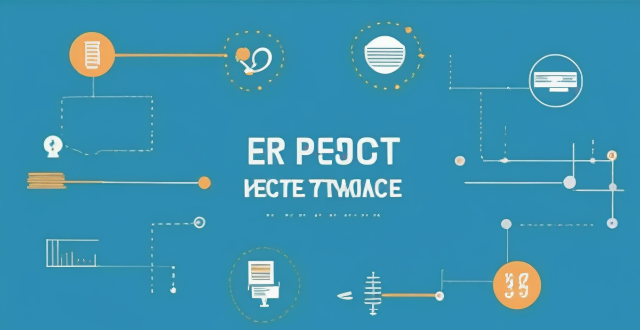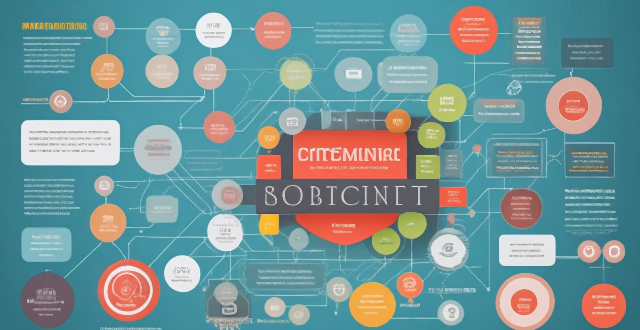Agent Contract

What are the benefits of hiring a sports agent for career management ?
Hiring a sports agent can bring numerous benefits to an athlete's career management, including negotiating contracts and deals, marketing and branding assistance, legal representation, and career planning and development. By working with an experienced sports agent, athletes can focus on their performance while leaving the business side of their careers in capable hands.

What education and training is required to work as a sports agent ?
Education and training are crucial for aspiring sports agents, who must possess a bachelor's degree in relevant fields and often benefit from a master's degree. Internships and certification programs offer hands-on experience and professional development, while key skills include communication, business acumen, legal knowledge, networking ability, and ethical standards. Continuous learning is essential to adapt to industry changes and ensure long-term success.

What is the difference between a regular contract and a smart contract ?
A regular contract and a smart contract differ in terms of their **nature**, **enforceability**, **cost**, **speed**, and **transparency**. Below are the key differences between these two types of contracts: ## Nature ### Regular Contract - Legal agreement between two or more parties. - Typically written in natural language (e.g., English). - Governed by local laws and regulations. ### Smart Contract - Self-executing contract with the terms directly written into code. - Deployed on a blockchain network. - Enforced by the underlying code and cryptographic protocols. ## Enforceability ### Regular Contract - Relies on legal institutions for enforcement (e.g., courts). - May involve mediation or arbitration processes. - Penalties for breach can be monetary or involve other forms of relief. ### Smart Contract - Autonomously executes when predetermined conditions are met. - Enforcement is decentralized and automated. - Penalties for breach are typically programmed into the contract logic. ## Cost ### Regular Contract - Can be costly due to legal fees, notary services, and potential litigation expenses. - Involves overhead of paper-based record keeping and manual processing. ### Smart Contract - Generally less expensive because it eliminates intermediaries. - Costs associated with blockchain transaction fees and contract deployment. ## Speed ### Regular Contract - Time-consuming process from negotiation to signing and execution. - Settlement times can vary widely depending on the complexity of the agreement. ### Smart Contract - Faster execution once the conditions are met. - Real-time settlements possible due to automation. ## Transparency ### Regular Contract - Limited transparency; only involved parties have access to the contract details. - Requires trust in the counterparty to disclose all relevant information. ### Smart Contract - High transparency; contract code and transactions are visible on the blockchain. - Trust is placed in the immutable and verifiable nature of the blockchain.

What is a smart contract ?
Smart contracts are self-executing contracts with the terms of the agreement between buyer and seller being directly written into lines of code, which exist across a distributed, decentralized blockchain network. They allow for transactions and the transfer or distribution of cryptocurrencies to be executed automatically without the need for a central authority, legal system, or external enforcement mechanism. Smart contracts are autonomous, immutable, traceable, and decentralized. They have various use cases such as cryptocurrency transactions, insurance claims, supply chain management, real estate transactions, gambling and betting, and legal documents. The benefits of smart contracts include efficiency, transparency, security, speed, and accuracy. However, there are challenges and considerations such as code quality, lack of legal recognition, interoperability issues, and privacy concerns.

How can schools address the issue of contract cheating, where students pay others to complete their assignments or exams ?
Addressing contract cheating in schools is crucial for maintaining academic integrity. Effective measures include using advanced plagiarism detection tools, educating students on academic integrity, encouraging open discussions, providing support services, and collaborating with parents and guardians. These strategies can deter students from engaging in contract cheating and promote a culture of original work.

Are there any hidden fees or contracts associated with upgrading my broadband ?
When upgrading broadband, beware of early termination fees, equipment rental costs, and installation charges. Also, understand contract minimums and auto-renewal clauses before committing.

How do smart contracts work ?
Smart contracts are self-executing contracts with the terms directly written into code, operating on a decentralized blockchain network. Key features include autonomy, trustless transactions, immutability, and traceability. The working mechanism involves deployment, execution based on predefined conditions, verification through consensus algorithms, and settlement updating contract states. Benefits encompass efficiency, transparency, security, and the removal of intermediaries. Challenges include legal recognition, coding errors, and handling complex logic. Smart contracts revolutionize traditional contract law by enabling secure, automated, and transparent transactions on blockchain networks.

What are the potential risks associated with smart contracts ?
Smart contracts revolutionize digital transactions but pose risks like code vulnerabilities, legal uncertainties, lack of human oversight, interoperability issues, and privacy concerns. Users must understand these potential pitfalls before engaging in smart contract agreements to mitigate adverse outcomes.

What are the legal implications of using smart contracts ?
Smart contracts, self-executing contracts with terms written in code on a blockchain, raise legal questions about enforceability, jurisdiction, privacy, security, and regulatory compliance. Best practices include consulting a legal expert, clearly defining terms, considering jurisdiction, and prioritizing privacy and security.

Is it better to purchase insurance through an agent or directly from the insurer ?
Purchasing insurance through an agent offers personalized service, convenience, and access to multiple insurers. Direct purchases from the insurer can be cheaper and streamlined but lack personalization and support. The best choice depends on individual needs and preferences.

How can smart contracts be used to streamline financial transactions ?
Smart contracts can streamline financial transactions by automating processes, reducing costs, and increasing efficiency. They can automate payments and transfers, act as escrow services, create loan agreements, streamline insurance claims, and facilitate trading and exchanges of financial assets. As blockchain technology evolves, we can expect more innovative uses for smart contracts in the financial industry.

What are smart contracts in the context of blockchain ?
Smart contracts are self-executing digital agreements that operate within the blockchain, providing a decentralized and trustless system for transactions. They are created using specific programming languages and deployed onto a blockchain platform. Once conditions are met, smart contracts execute automatically, with each node verifying the process to ensure accuracy. Applications include cryptocurrencies, supply chain management, real estate, insurance, and legal agreements. However, challenges like immutability, complexity, legal standing, and privacy concerns must be addressed.

What are the pros and cons of using vinegar as a cleaning agent in homemade solutions ?
Using vinegar as a cleaning agent in homemade solutions has both advantages and disadvantages. It is a natural disinfectant, deodorizer, environmentally friendly, cost-effective, and versatile. However, its acidic nature can damage certain surfaces and materials, and its strong smell may not be desirable in some environments. It is essential to understand the properties of vinegar and use it appropriately to avoid damaging surfaces or leaving behind unwanted odors.

What are the different levels of biosafety containment and when should they be used ?
Biosafety containment levels are measures taken to isolate hazardous biological agents in labs and research facilities. These range from 1 (low risk) to 4 (high risk), with each level indicating the severity of the risk associated with the agent and the corresponding safety measures required to handle it. Examples include most microorganisms used in teaching labs (BSL-1), human pathogens like Salmonella (BSL-2), Mycobacterium tuberculosis (BSL-3), and Ebola virus (BSL-4). The appropriate biosafety containment level should be determined based on a risk assessment of the biological agent being handled, taking into account factors such as pathogenicity, mode of transmission, availability of effective treatments or vaccines, and potential impact on public health.

Can smart contracts be used in traditional businesses ?
Smart contracts, self-executing contracts with terms written into code, can be used in traditional businesses but have limitations such as legal issues and complexity. They offer advantages like transparency, efficiency, and security but also present challenges like lack of human touch and privacy concerns. Businesses should carefully consider their specific needs before adopting this technology.

What are the benefits of using smart contracts ?
Benefits of Using Smart Contracts Smart contracts are self-executing contracts with the terms of the agreement between buyer and seller being directly written into lines of code. They offer a range of benefits including automation, transparency, security, efficiency, and cost savings. By automating processes and reducing the need for intermediaries, smart contracts can save time and money, as well as reduce the risk of errors or fraud. They are secured by cryptography, which makes them extremely difficult to hack or manipulate. This security feature can be particularly useful in situations where sensitive information needs to be shared between parties. Smart contracts can also lead to cost savings by reducing the need for intermediaries or third parties. As blockchain technology continues to evolve, it is likely that we will see even more innovative uses for smart contracts in the future.

What role does sports economics play in determining player salaries and contracts ?
Sports economics plays a crucial role in determining player salaries and contracts by considering various factors such as market demand and supply, revenue generation, cost of production, risk management, competitive balance, and free agency. Teams must make informed decisions about player compensation while balancing financial considerations with the goal of achieving success both on and off the field.

What is power of attorney, and why is it important ?
Power of attorney is a legal document allowing one person to appoint another to act on their behalf in various matters. It's crucial for incapacity planning, flexibility, life event planning, emergency preparedness, financial management, and adaptability. By granting POA, you can prevent court-appointed guardianship, ensure continuity, choose trusted agents, complement estate planning, handle emergencies promptly, manage finances, and update the document as needed.

How do I become a professional athlete in basketball ?
To become a professional basketball player, start early, practice regularly, join a team or club, focus on academics and attend a good high school with a strong basketball program. Get recruited by a college program, excel in college, gain national exposure, hire an agent, and go through the draft process. Stay focused, maintain a positive attitude, and be willing to put in the work to achieve success.

Are there any risks associated with investing in DeFi ?
Investing in DeFi comes with risks such as smart contract vulnerabilities, impermanent loss, regulatory uncertainty, and lack of transparency. It is important for investors to carefully evaluate these risks before investing in any DeFi project.

Are there any discounts or promotions available for switching to a new mobile operator ?
When considering switching to a new mobile operator, itWhen considering switching to a new mobile operator, it if there are any discounts or we will explore the various incentives that mobile operators may offer to attract new customers and retain existing ones. These incentives can include sign-up bonuses, referral programs, trade-in deals, and loyalty rewards. However, it's essential to consider factors such as contract terms, coverage, hidden fees, and compatibility before making the switch. By weighing these factors carefully, you can make an informed decision about whether switching to a new mobile operator is right for you.

What are the potential risks associated with sports sponsorship and how can they be mitigated ?
Sports sponsorship is a popular marketing strategy used by companies to promote their brand, products, or services. However, there are potential risks associated with sports sponsorship that need to be considered and mitigated. These risks include reputational risk, financial risk, and legal risk. To mitigate these risks, companies should conduct thorough research on the athlete/team before signing a sponsorship deal, ensure alignment between the sponsor's values and those of the sponsored entity, set clear budgets for sponsorship activities, monitor the performance of the sponsored entity, negotiate flexible contract terms, and work with legal experts to ensure compliance with all relevant laws and regulations. By managing these risks, companies can maximize the benefits of their sports sponsorship investments.